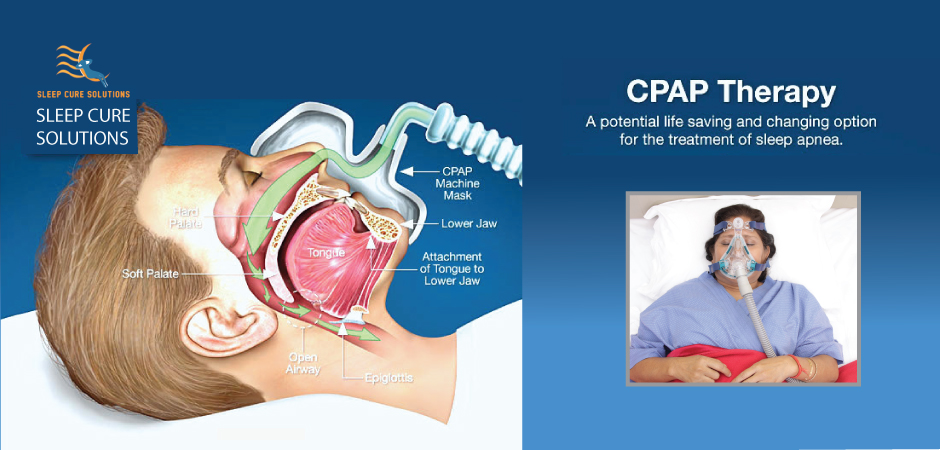CPAP Therapy
What is CPAP?
Continuous Positive Airway Pressure (CPAP) is the most common and effective treatment for obstructive sleep apnoea. CPAP treats sleep apnoea by providing a gentle flow of positive air pressure through a mask to keep the airways open during sleep.
How does CPAP work?
When CPAP is applied, air is pumped through a mask into your upper airway acting as a splint to hold your airway open so that you can breathe more normally. This prevents the upper airway from collapsing and thus prevents apnoeic events and snoring.
The above diagrams show a side view of a normal airway (1), a collapsed airway as in obstructive sleep apnoea (OSA) (2), and an airway when CPAP is being used (3).
How can CPAP help?
When used properly, CPAP can alleviate the following symptoms caused by sleep apnoea:
- Daytime Sleepiness
- Fatigue
- Morning headaches
- Poor concentration or memory
- Decreased libido or impotence
- Decreased attention
- Depression
- Decreased dexterity
- Personality changes
What are the risks of not treating sleep apnea?
Without treatment, sleep apnoea increases your risk for the following health issues:
- Excessive Daytime Sleepiness (EDS)
- Hypertension
- Stroke-3rd leading cause of death
- 30-50% of stroke victims have mod-severe OSAs
- Angina
- Myocardial Infarction
- Left ventricular failure
- Memory loss/cognitive dysfunction
- Employment difficulties, secondary to EDS
- Social Disharmony, secondary to EDS
- Emotional Disturbances, secondary to ??????EDS
- Related to 1st leading cause of
death-coronary heart disease.


